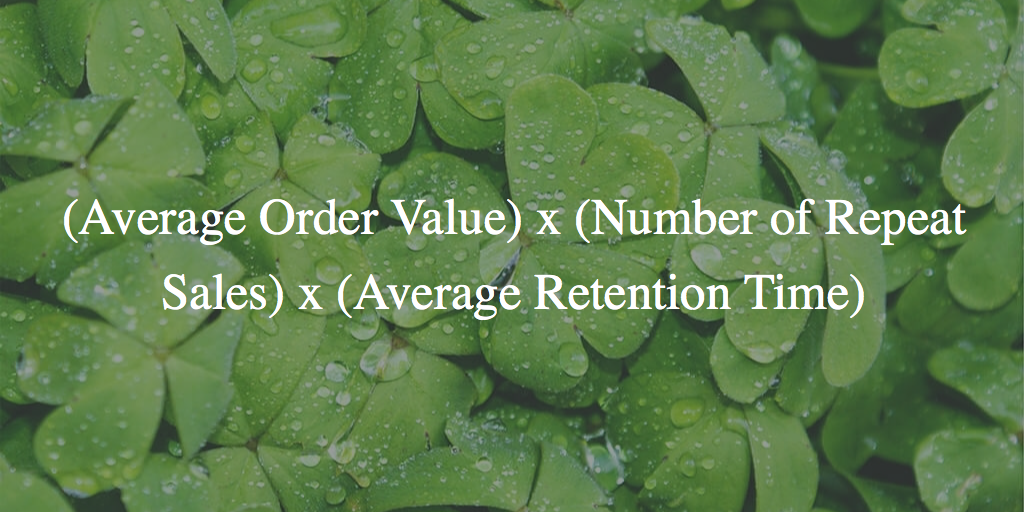It goes without saying that we encourage everyone to have repeat customers. It’s cheaper for you and yields more revenue.
In today’s blog post, we’re going to focus on one metric: customer lifetime value. Let’s look at the following points:
- What is customer lifetime value (CLTV)?
- How do you find it?
- What can you do with that information?
- How to increase your customer lifetime value?
- An example
What is customer lifetime value (CLTV)?
The customer lifetime value refers to the value of a customer throughout the entire time they do business with you. This means from the first time they make a purchase, right up until the last. What is their perceived value?
How do you find it?
(Average Order Value) x (Number of Repeat Sales) x (Average Retention Time)
Average order value: The average price of an order that a customer makes.
Number of repeat sales: The total number of times your customers return to make another purchase.
Average retention time: How long you keep your customers as your customers for.

What can you do with that information?
The customer lifetime value is important because it’s the core of your business. It allows you to understand how much each customer is worth to your business.
It helps you know where you should be investing your money in order to increase your profits.
And it allows you to see if you’re overspending on your customer acquisition.
You don’t want to spend more money getting customers if they’re not worth as much. This would mean you might be running your business in an unprofitable way.
What this means is if it costs you on average $500 to acquire a new customer, but your predicted customer lifetime value is only $450, you need to change the way you’re running things.
Once you’ve reduced your customer acquisition cost, you are able to increase the overall profit you make per individual person who shops with you.
How to increase your customer lifetime value?
If you want to increase your customer lifetime value, then you need to work on building a relationship with you so that they spend more money with you.
You could focus your efforts on trying to increase the average order value. This
Loyalty program. By implementing a loyalty program, you’re able to encourage a customer to return and make another purchase from you.
If you don’t want to run a loyalty program on your store (but a word of advice, we really think you should) then you can also increase the customer lifetime value by offering discounts and promotions.
Example
Let’s take a look at a subscription box service called: Woofbox, a subscription box for people who have dogs.

The box costs £18.95.
You get the box each month and let’s suppose you’ll stay with Woofbox for 6 years.
£18.95 x 12 x 3 = £682.20
Now let’s think about it in a different way.
If you focus on just trying to win one £18.95 customer, your strategy might be different than if you were trying to win a £682.20 customer.
It’s all about the way you position yourselves and how you try to attract new clientele.
With this information, Woofbox has a deeper understanding of some of its customers.
Takeaways
Customer lifetime value is an important metric and should be used to:
- See the overall value of your customers.
- Allow you to see if you’re spending too much money on acquiring your customers.
- Show you where you should be investing the majority of your money.




